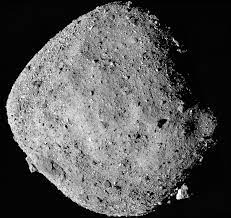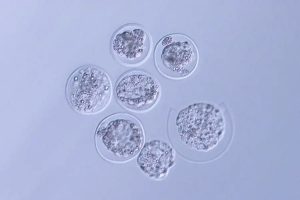Bennu Sample Sent to the Natural History Museum in the UK
28th Nov 2023
A sample from asteroid Bennu has found its place at the Natural History Museum. Researchers there will subject the extraterrestrial grains to a comprehensive array of experiments and tests, aiming to significantly enhance our understanding of the formation of asteroids like Bennu, the materials they may harbor, and, fundamentally, whether they played a role in transporting the essential building blocks of life to Earth.
Why Is This Sample Potentially So Exciting?
To begin with, scientists predict that it is an undisturbed time capsule from the early solar system, offering significant clues about the origin of Earth and the life it harbors. Also, we need to understand the nature of the asteroids as there is a potential threat to Earth from asteroid strikes.
Dr Ashley King, who will be part of this research team, said:
‘We’re really lucky; we’re one of the first people to get our hands on the Bennu samples. Here at the Museum, we have a team of researchers that are going to start studying these samples to understand their mineralogy and chemical composition.’
Bennu is believed to have originated from material that coalesced during the solar system’s formation approximately 4.56 billion years ago.
Before the Sun’s formation, a sequence of chain reactions initiated, resulting in the development of increasingly complex elements and molecules. This material eventually merged into what is known as a ‘protoplanetary disk’ surrounding the emerging star, akin to the rings of Saturn in the present day.
This substance, comprised of elements such as water and iron, gradually began to merge. As the aggregation of matter intensified, its gravitational force grew more pungent, drawing in additional material and, over time, culminating in the formation of the initial building blocks of planets.
Originating from the same celestial disk, Bennu came into existence alongside our own planet, sharing a common material foundation. This correlation provides scientists with an extraordinary vantage point to investigate the earliest moments of Earth’s life.
More samples coming to the UK
At Orbital Today, we recently had the privilege of interviewing Dr. Sarah Crowther, from the University of Manchester, who will study a Bennu sample sent from NASA. To do this, she will use a unique xenon gas spectrometer called RELAX. We asked her how the UK researchers will work on the sample. She responded:
‘There are several teams here in the UK who are part of the OSIRIS-Rex Sample Analysis Team; different people are working on different things. Here in Manchester, there are people looking at halogens, mineralogy and petrology, as well as our xenon analyses. The team at the Natural History Museum will be looking at the mineralogy and petrology’.







Thank you for your comment! It will be visible on the site after moderation.